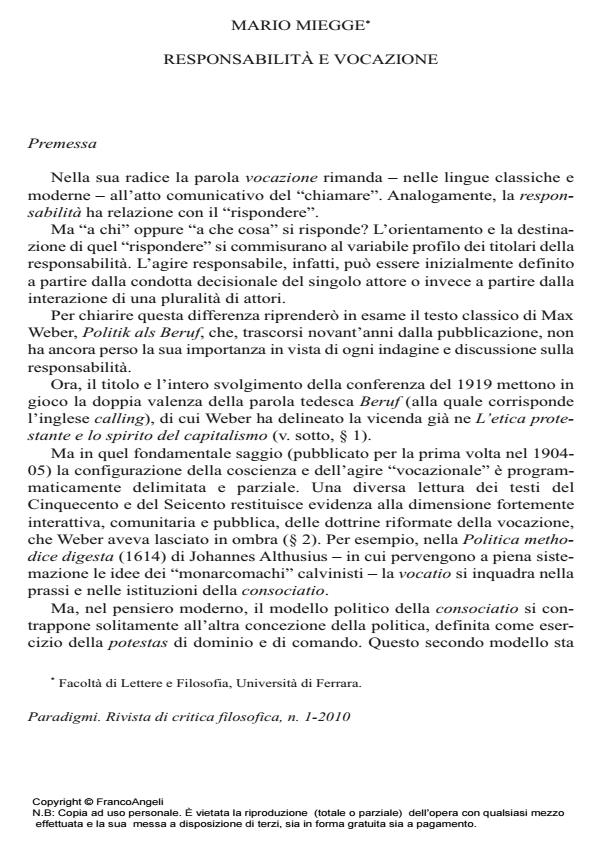Responsabilità e vocazione
Journal title PARADIGMI
Author/s Mario Miegge
Publishing Year 2010 Issue 2010/1
Language Italian Pages 16 P. 59-74 File size 291 KB
DOI 10.3280/PARA2010-001005
DOI is like a bar code for intellectual property: to have more infomation
click here
Below, you can see the article first page
If you want to buy this article in PDF format, you can do it, following the instructions to buy download credits

FrancoAngeli is member of Publishers International Linking Association, Inc (PILA), a not-for-profit association which run the CrossRef service enabling links to and from online scholarly content.
In his notorious conference Politik als Beruf (1919), Max Weber posited the "ethics of reponsibility" as an essential condition for political action. However, since politics were described by Weber in terms of power (Macht) and dominion (Herrschaft), the main subject of political vocation and responsibility was for him the modern mass leader, endowed with charismatic qualities and decision making abilities. He therefore neglected the other basic element of modern politics: the dynamics of groups, resulting from mutual voluntary interaction and covenants. There are, hence, two different ways of conceiving responsibility. The first, which Weber adopts, is tied to the notions of power and leadership. The second is tied to the notions of reciprocity and consociatio, a key-word in the federative tradition inaugurated in the 17th century by the German Calvinist Johannes Althusius.
Keywords: Calling, Consociatio, Herrschaft, Macht, Promise, Responsibility.
Mario Miegge, Responsabilità e vocazione in "PARADIGMI" 1/2010, pp 59-74, DOI: 10.3280/PARA2010-001005